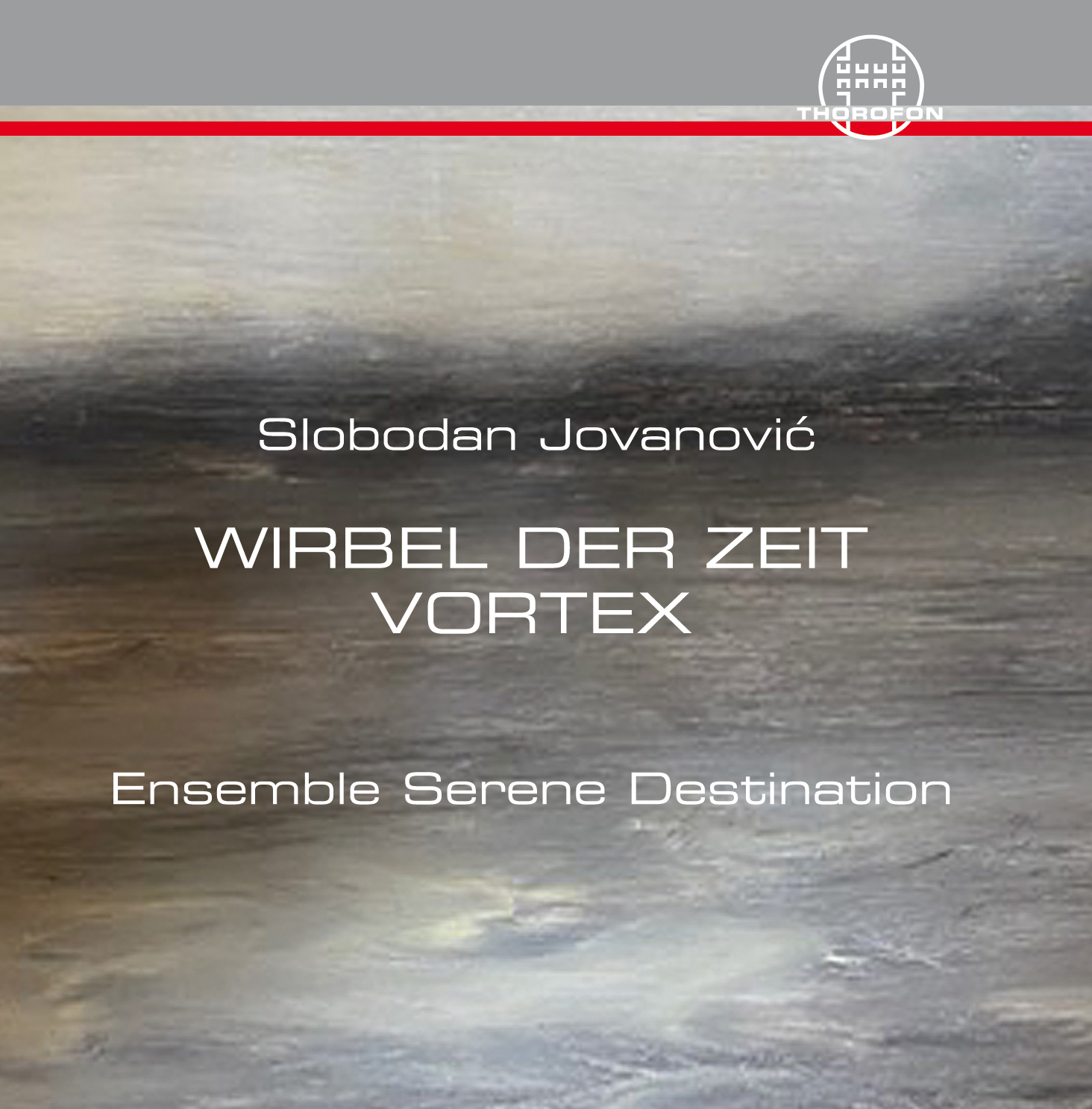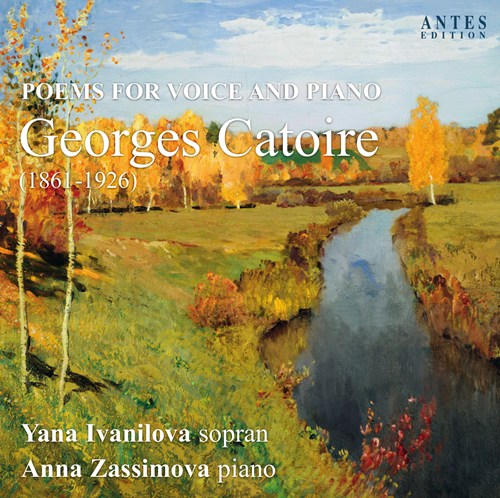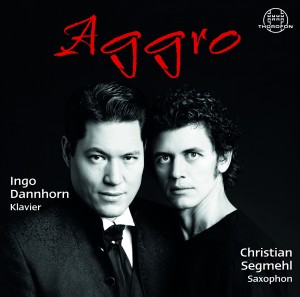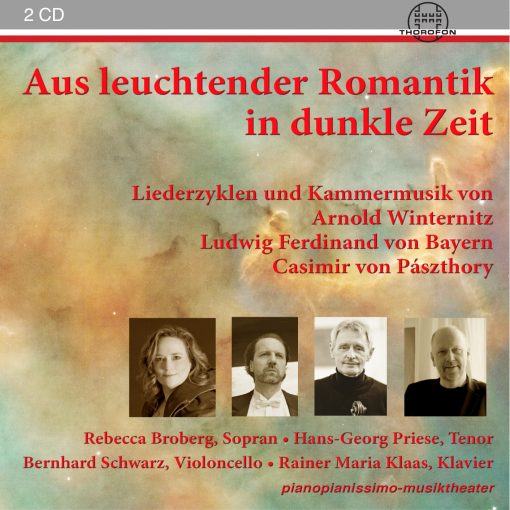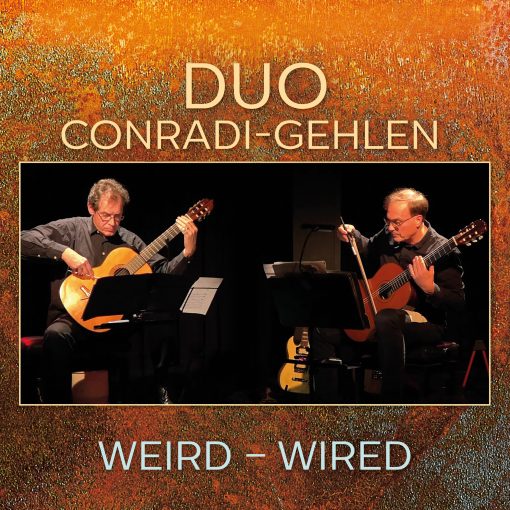SLOBODAN JOVANOVIĆ
WIRBEL DER ZEIT / VORTEX
Ensemble Serene Destination
Dialog mit der Vergangenheit. Der komponierende Cembalist Slobodan Jovanović
Slobodan Jovanović studierte Cembalo, das bis heute sein Hauptinstrument ist, aber auch Clavichord und Hammerflügel. Viele Konzerte und zahlreiche CD-Einspielungen dokumentieren seine intensive Auseinander-setzung mit dem historischen Repertoire für diese Instrumente, aber auch sein großes Engagement für Werke des 20. und 21. Jahrhunderts, vor allem solche für Cembalo. Viele stammen von ihm selbst.
Als moderner Mensch erkundet Slobodan Jovanović in seiner Musik den Bezug zur Gegenwart und ihren Themen, Problemen und Herausforderungen, als Musiker, der sich intensiv mit der Musik von Monteverdi und Frescobaldi bis zu Bach und Händel auseinandersetzt, sucht er aber auch den Dialog mit der Musik der Vergangenheit, die ihn auf vielfältige Weise inspiriert und kompositorisch herausfordert.
Vocabulary für Mezzosopran und Cembalo schlägt eine Brücke vom Solomadrigal der Monteverdi-Zeit in die Gegenwart. Kein Klang, keine melodische Bewegung imitiert die Musiksprache des 17. Jahrhunderts buch-stäblich, und doch ist die Nähe des affektgetränkten Sologesangs dieser Zeit allgegenwärtig. In A Madrigal Drawn für Violine und Cembalo, einem in Tönen und Klängen „gezeichneten“ instrumentalen Madrigal, wird der Bezug zur Madrigalkunst durch Zitate aus Werken Monteverdis und Marenzios sogar explizit.
Eine Kompositionstechnik, die sich vom frühen 17. bis weit ins 18. Jahrhundert großer Beliebtheit erfreute, war das Ostinato, die Wiederkehr bestimmter Ton- und/oder Akkordfolgen. Slobodan Jovanović greift diese Technik in mehreren Kompositionen auf, besonders deutlich in Vortex für Trompete, Klavier, Cembalo – dieses Instrument begegnet bei ihm in den unterschiedlichsten Kontexten – und Streichern, das vollständig von einem rhythmischen Ostinato und seinen Abwandlungen durchpulst ist. In großdimensionierten Werken wie Wirbel der Zeit und Echo of the Irrevocable treten zu Ostinatoabschnitten auch Klangflächen, für die es in der Musik des Barocks ebenfalls illustre Vorbilder gibt, etwa bei Antonio Vivaldi.
In der Musik von Slobodan Jovanović treffen Altes und Neues aufeinander. Aus dem Dialog mit der Vergangen-heit entsteht ein Stück Gegenwart, das seinen historischen Ursprung nicht verleugnet.
(Thomas Seedorf)
Bisher bei THOROFON erschienen:
CTH2676 THE ITALIANATE BACH – AT HIS BEST (PART II)
JOHANN SEBASTIAN BACH: „…nach italiaenischen Gusto“
SLOBODAN JOVANOVIĆ
WIRBEL DER ZEIT / VORTEX
Ensemble Serene Destination
Dialogue with the Past. The composing harpsichordist Slobodan Jovanović
Slobodan Jovanović is a virtuoso on several keyboard instruments. He studied harpsichord, which is still his main instrument today, and also clavichord, fortepiano and organ. His dedicated exploration of the historical repertoire for these instruments and his deep commitment to 20th and 21st century works, particularly for the harpsichord, are documented in numerous concerts and on many CD recordings. He has composed a large number of works himself.
As someone living in the 21st century, in his music he explores the relationship with the contemporary era and its themes, problems and challenges. As a musician engaging intensively as much with the music of Monteverdi and Frescobaldi as with that of Bach and Handel, he also seeks dialogue with the music of the past, which inspires him in manifold ways and presents him with compositional challenges.
Vocabulary for mezzo-soprano and harpsichord creates a bridge between the solo madrigal of Monteverdi’s time and the present day. No sound, no melodic motion imitates the musical language of the 17th century in a literal way, and yet the emotion-drenched solo vocal line of that era is perpetually at hand. In A Madrigal Drawn for violin and harpsichord, an instrumental madrigal „drawn“ using notes and sounds, explicit reference is made to the art of the madrigal through quotations from works by Monteverdi and Marenzio.
A compositional technique that was very popular from the early 17th century until well into the 18th century was the ostinato, the recurrence of certain sequences of notes and/or chords. Slobodan Jovanović uses this technique in several compositions and to particularly striking effect in Vortex for trumpet, piano, harpsichord and strings. In his music the harpsichord appears in very diverse contexts. A rhythmic ostinato and its derivations pulsate through this entire piece. In large-scale works such as Wirbel der Zeit [Vortex of Time]and Echo of the Irrevocable ostinato sections are joined by sound textures with equally illustrious precedents in Baroque music, for instance pieces by Antonio Vivaldi.
In Slobodan Jovanovi’s music the old and the new come together. From the dialogue with the past a piece of the present emerges that does not deny its historical origin.
(Thomas Seedorf, English translation: Debbie Hogg)
Other CD by SLOBODAN JOVANOVIĆ on label THOROFON:
CTH2676 THE ITALIANATE BACH – AT HIS BEST (PART II)
JOHANN SEBASTIAN BACH: „…nach italiaenischen Gusto“

